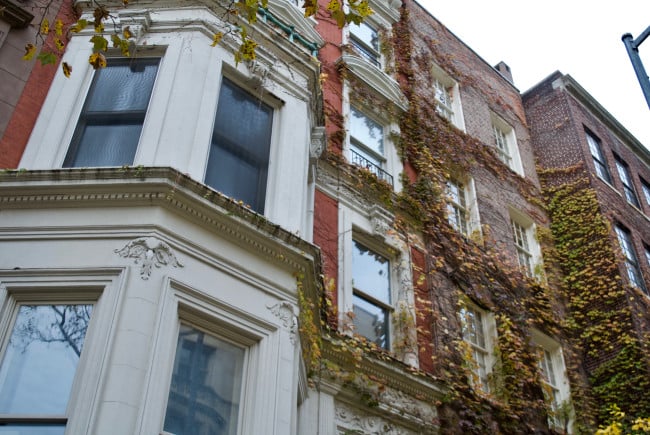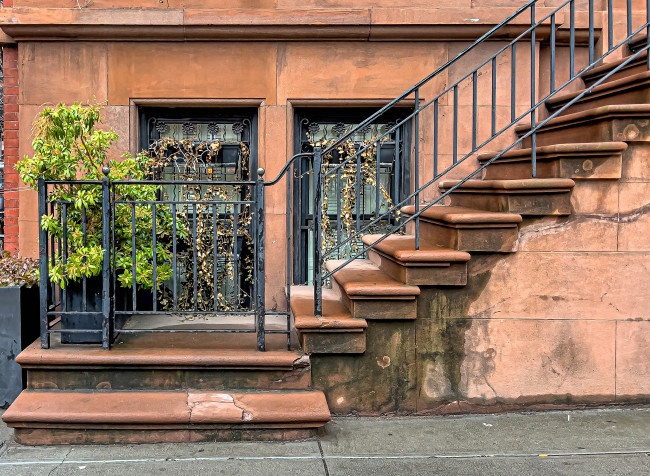How bidding wars for rentals work, and ways to deal with the competition
- Bidding wars for rentals are legal and increasingly common in NYC
- Consider increasing your offer by 2 to 5 percent of the asking rent
- Ask yourself what the apartment is worth to you—and bid accordingly

It's good to know how bidding wars work so you can put yourself in the best position to land a rental in NYC.
iStock
Bidding wars for rental apartments are a sign of the competitive nature of the New York City rental market. If you're searching for a rental and keep losing out in bidding wars, you may have lots of questions, like whether this is even allowed or how much you have to bid to win.
It's a good idea to understand how these negotiations work and what you can do to put yourself in a better position to land an apartment.
“When the market is this fast-moving, you are bound to see bidding wars, especially for competitively-priced or unique apartments in popular locations,” says Gary Malin, chief operating officer at Corcoran.
[Editor's note: This article was originally published in March 2022. We are presenting it again with updated information for June 2023.]
Below are some answers to questions about bidding wars for rentals so you can stay on top of the competition.
1. Are bidding wars for rentals allowed?
The simple answer is yes. There are a few different types of rental housing in the city but the easiest type to find are market-rate apartments. They make up just over 40 percent of the city’s rentals and are privately owned and unregulated, which means the landlord can charge whatever the market will allow. These are the apartments where you’ll find bidding wars.
Landlords of rent-regulated apartments can’t hike rents in the same way but these types of apartments are much more difficult to find.
2. When do you offer more for a rental?
If you attend a very busy open house, you’ll already have a sense the apartment is popular. “As soon as the landlord gets more than one offer they have the leverage,” says Erin Wheelock, a broker with Keller Williams NYC.
The actual timing of a request for higher bids depends on how the landlord or management company operates. If a landlord receives multiple applications on the first day the apartment is available, they'll probably ask for best and final offers from everyone and approve a renter based on those offers and the strength of the supporting application.
Some landlords will only process one application at a time, but if they know there are multiple backup applications they might ask a prospective renter to increase their offer. Other landlords or brokers will submit multiple applications at once.
"You can assume that the point at which a landlord would ask for a better offer would be after you have submitted your application but before you have been approved," says Evan Osur, an agent at Living New York.
That can leave some renters uncomfortable, with a feeling that a landlord could be making a calculation from their application that they can pay more. Brokers say this is unlikely. You may deal directly with a landlord, but in many cases you are dealing with a representative for the landlord and if these agents or brokers see that the apartment can generate a higher rent for the landlord they will try to get it, but it is not based on your particular finances.
Also, "the landlord will never create a lease, have you sign, and then subsequently increase the price," Osur says.
3. How much more should you offer for a rental?
The percentage increase in the rent you offer will depend on whether the asking rent is under market. That's where some research comes in handy—try to find out what similar apartments in the same area are renting for by searching a listings website. If the asking rent is low, you may choose to offer more.
The rent increase you offer will vary depending on whether it is a studio asking $1,700 or a much pricier place. If you're willing and able to pay more, Wheelock’s advice is to increase the rent by an amount plus a little extra: For example she suggests offering $530 instead of $500. This is what will put you ahead of the competition. “That little extra bit can be make or break,” she says.
Osur says a reasonable increase is typically between 2 to 5 percent of the advertised rent.
"You can always tell if something is in high demand by looking at the saves to days on market ratio on StreetEasy–that's always a good barometer," he says. So, if the rental has been saved by 170 users in a week, you might consider increasing your offer at the higher percentage.
Another approach is to offer just a bit over the asking rent, says Brian Hourigan, managing director at BOND New York. "Perhaps $25 or $50 as more of a symbolic gesture," he says, particularly if you feel your application and financial qualifications will place you high in terms of consideration.
One other factor to consider is what the apartment is worth to you. Recognizing that continuing your apartment search can have an emotional toll. Wheelock suggests asking yourself: “How much is it worth to not have to deal with this process anymore?” That—and your budget— should be your guide.
5. Is a rental bidding war a sign of a bad landlord?
If you get into a tense bidding war when you're buying an apartment at least you don't expect to have a relationship with the seller when you're done with the deal. That's not the same for a rental, where you can expect to deal with the landlord on a regular basis.
"Most of the time the landlord has a representative to make sure the owner isn't the bad guy," Wheelock says. If you're uncomfortable with how the process is being managed you can, of course, walk away.
Even though a bidding war for a rental can be disconcerting, it's probably more important to determine whether the landlord is someone who responds to questions or maintenance concerns with speed and efficiency. Be sure to do your homework about what it is like to live in the building and see what other tenants have to say.
"Open and transparent communication is what typically makes renters feel like they have a landlord who cares and they can trust," Osur says.
5. How do I avoid a bidding war for a rental?
To beat out the competition, you want to make sure you have a strong application that's ready to go and be first in the door. Don't wait until the weekend to visit an open house—try getting in there earlier on a Thursday or Friday. Being fast and first, however, may not be enough.
One tip to put you ahead of the competition is to offer to start the lease early. Can you move within a few days of seeing the apartment? Landlords don't want their apartments sitting empty.
"The typical market allows for anywhere between 15 to 30 days for the expected move-in date of a new tenant; an applicant can sometimes trade an immediate occupancy for their application being considered first," Hourigan says.
The summer is normally the busiest time in the rental market and that means landlords usually want leases to start and end between May and August. If an applicant in the winter months is open to a 16 or 18 month lease term they can sometimes leverage that flexibility.
When there is high demand for apartments there are fewer concessions, which means no-fee rentals are more rare. But if you do come across an apartment where the landlord is paying the broker's fee, one tactic to win their favor is to offer to pay that fee.
6. What are the alternatives to rental bidding wars?
If the strategies above still have you tearing your hair out, consider your options.
Rents are very location specific, so think about heading to the fringes of the city for a cheaper deal. If you really want to be in Manhattan, Upper Manhattan is your best bet. "If your budget is $3,500 for a one bedroom Downtown, try Uptown, you'll have a budget that may be able to go over ask," Wheelock says.
Depending on your finances, it may make more sense to buy. If your main obstacle is coming up with the required 10 to 20 percent down payment, there are some first-time buyer loans and programs available to New Yorkers, including mortgages that only require 3 percent down.
7. Does it help to have a broker?
In a competitive market, having a broker can give you an edge, Malin says. A good broker knows where the deals are, knows what comparable apartments are renting for, and can guide you on how much to increase your offer and negotiate on your behalf. At the very least a broker can prepare you for what to expect in the current market.
"You're only in the market today because you need to be in the market today. They are in the market every day and they understand what's going on," he says.
A broker might have relationships with owners who have apartments that are yet to list or know of apartments in a building you might not have considered, he explains. They are also the ones getting alerts and they can get you in to see apartments before the competition.
If you're trying to avoid using a broker so you don't have to pay the broker fee, that might not be sensible. "Given that most people live in their apartments for more than one year, to get so hyper-focused on the broker fee at times, you'll end up missing the forest for the trees," Malin says.
8. Are rental bidding wars here to stay?
Demand for NYC rentals shows no sign of slowing down. Understanding seasonal rental pressures is also important. However, if you're looking for an indicator about how likely it is your rental search will end in a bidding war, Malin suggests keeping an eye on the vacancy rate.
"In New York City, the difference between a 1.5 percent vacancy rate in terms of bidding wars and price negotiability versus 2.5 percent is significant," he says.
This is where Brick’s rental market reports can be handy. In addition to the vacancy rate, these tell you what median rents are and what leasing activity is like to give you a sense of how much (or how little) negotiability renters have.
You Might Also Like




























